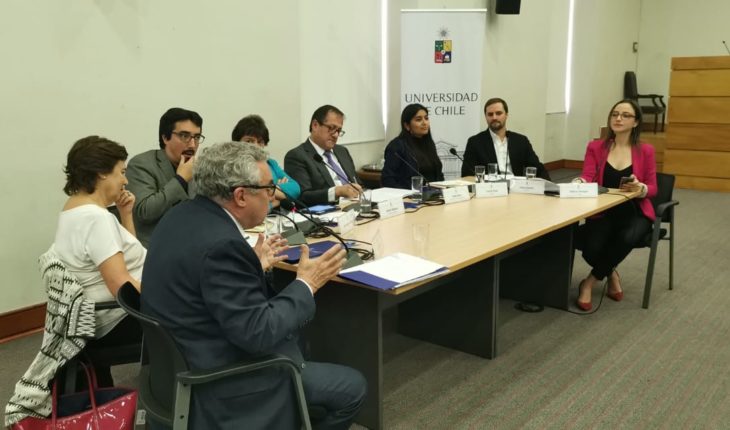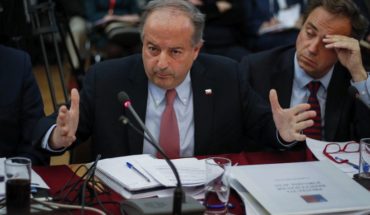The University of Chile together Monday to discuss to the former Ministers of education Adriana Delpiano, Harald Beyer and Mariana Aylwin next Senator Juan Ignacio Latorre and the deputies Camila Rojas and Jaime Bellolio, in Forum “Free who is responsible?”.
The discussion was marked by the figure of 27 thousand students who were outside the benefit exceed the formal University racing year and the decision of the Government to close the door to extend free education, ensuring that funds will be intended for initial education.
In this context it was that former owners of education Adriana Delpiano, Harald Beyer and Mariana Aylwin alongside those parliamentarians Juan Ignacio Latorre (RD), deputies Camila Rojas (Commons) and Jaime Bellolio (UDI), met to discuss and confront what positions done in the immediacy and in the long run around free in the system of higher education.
Former Minister and one of those responsible for the law on higher education of the Government of former President Bachelet, Adriana Delpiano, said that “you would have expected that at least the head of the division of the Ministry of education was here to pick up part of the concern, to know how it continues,”but there were representatives of the Government in the Forum.
For its part, the rector of the University Adolfo Ibáñez (UAI) and former Minister of education, Harald Beyer, recalled that “everyone knows that I’ve not been partisan of gratuity and still not be in favour of free”, but warned that “we must seek a solution with the in musical instruments that we have because gratuity came to settle”. However, assumed that “new credit (which replaces to the falls) it being discussed in Congress has design problems”.
For Mariana Aylwin, the underlying theme is that, despite the fact that there is a greater public investment in higher education, institutions have less revenue with cost-free. Accordingly, proposed the possibility of exploring possibilities of not necessarily public resources such as the co-payment, and adding “the endorsement of the State credit is perfect, no longer be funded by the banking, and becomes a solidarity fund seem important “, in line with the proposal of the Executive system of solidarity financing or falls 2.0 which is located in the Congress.”
The President of the Commission of Senate education, Juan Ignacio Latorre (RD), explained that the problem of Fund, beyond free, is the financing of higher education model. “There is a design that will generate permanent deficits. Now they are 20 thousand students of gratuity, but this will continue happening always, because there is a design that is in deficit.”
In the same vein, the President of the Education Commission of the Chamber of Deputies and former President of the Fech, Camila Rojas (common party) stressed the importance of “reduce the tariff relevance, increasing basal contributions from public institutions “, since it is essential for the functioning of these institutions”.
For his part, Deputy Jaime Bellolio (UDI) explained that, in her view, problems which has unveiled free begin much before that students entering universities, and that is necessary to regulate what happens in other educational levels, ensuring that “it is unfair that the priority is higher education (…) Who are they?, the most vulnerable? No, they aren’t”.
In his speech the rector of the University of Chile, Ennio Vivaldi, stated that “state their universities will deliver funds by way of the voucher is a total nonsense”. In the opinion of the President of the CUECh, “there must be a project shared depending on the country and each region between the State and its universities. And that should be, at least, the source of financing of the public system. And no doubt, they have to be other ways of financing for the private system”.
translated from Spanish: “Who is responsible?”: the debate among parliamentarians, guiding, and former Ministers of education for free
April 29, 2019 |





